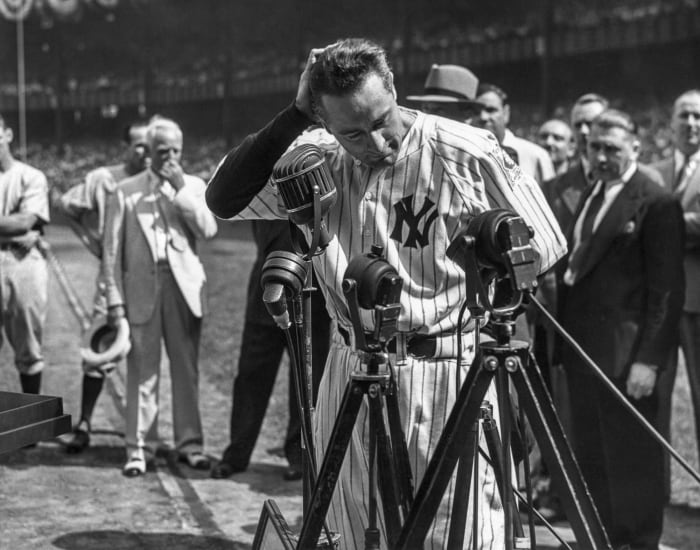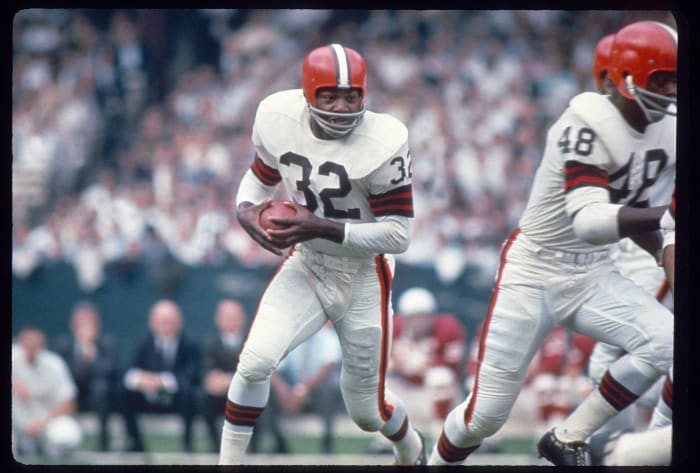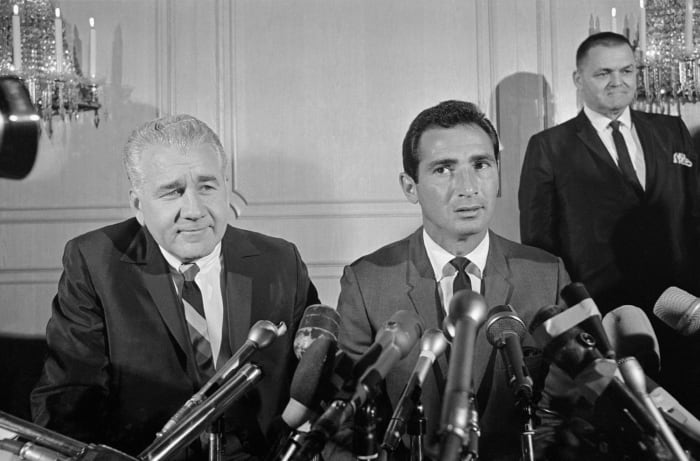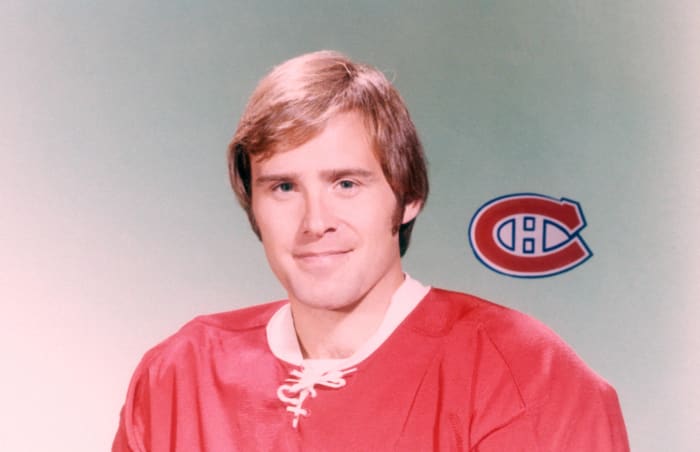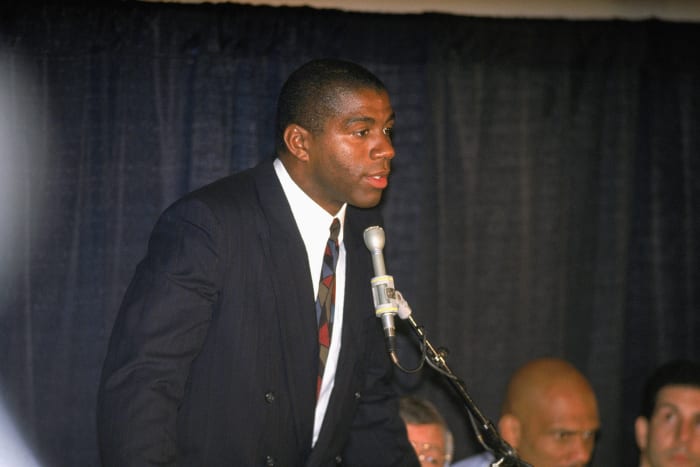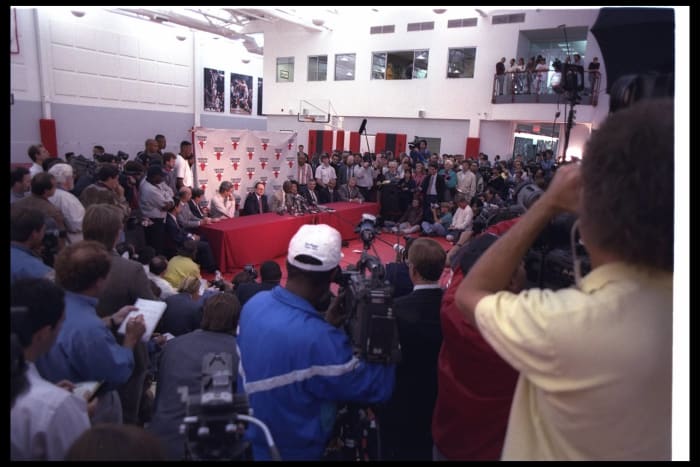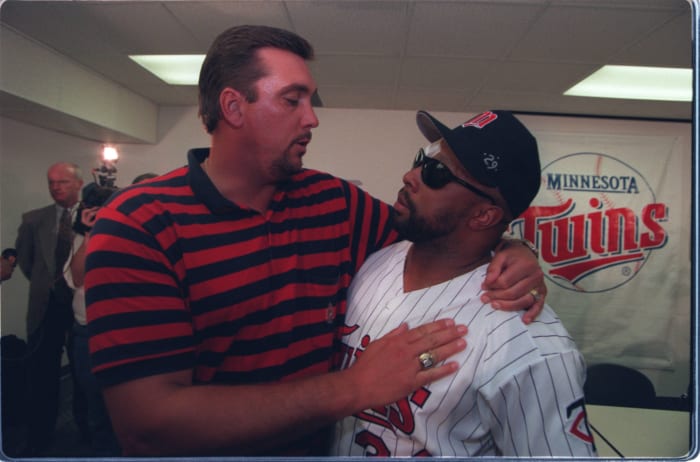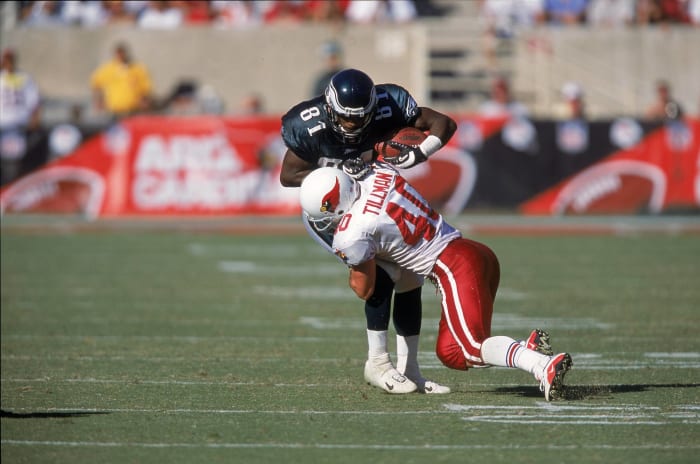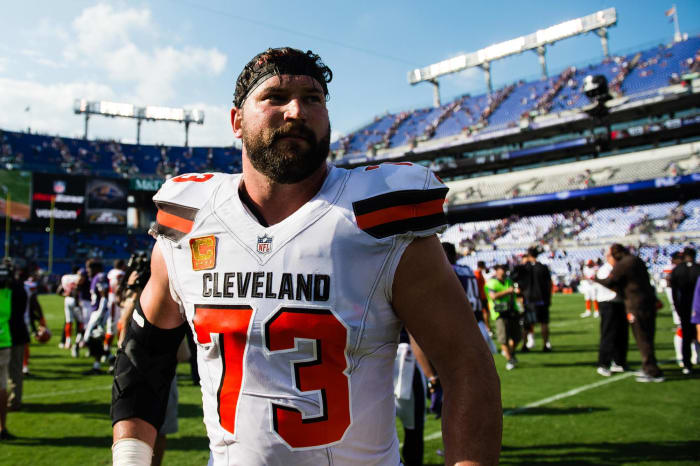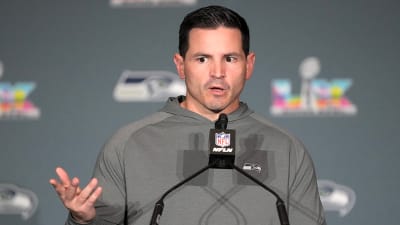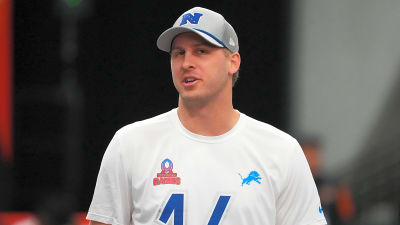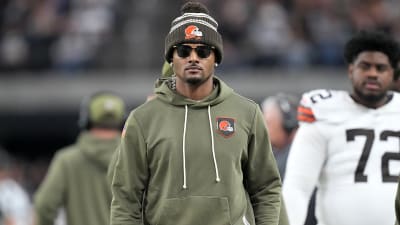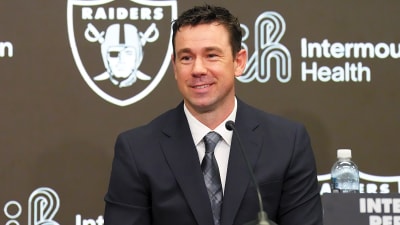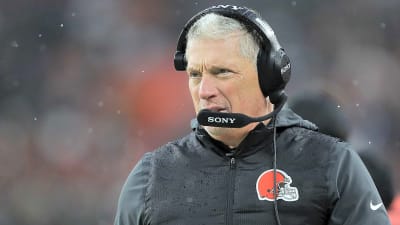Prominent athletes some times shock the world by walking away from the game in their primes, whether due to injury, lack of desire or even to venture down another walk of life.
With that in mind, here's our list of 20 athletes who stunned the sports world by retiring.
1 of 20
Lou Gehrig, New York Yankees (1939)
Stanley Weston/Getty Images
Following a subpar 1938 season and an even worse start to '39, the "Iron Horse" was diagnosed with the fatal amyotrophic lateral sclerosis (ALS). On May 2, 1939, Gehrig's consecutive games streak ended at 2,130, by his own insistence. He retired shortly after and was honored at Yankee Stadium on July 4 of that year — where he gave his famous and touching farewell speech.
2 of 20
Rocky Marciano (1956)
Bettmann/Contributor/Getty Images
Talk about going out on top. Marciano was 49-0 with 43 knockouts when he hung up the gloves. He said he wanted to spend more time with his family. That's understandable, especially when considering all the punishment the sweet science can deliver to the body. But Marciano was just 31 years old, and many felt he still had more punishment of his own to give.
3 of 20
Jim Brown, Cleveland Browns (1966)
Focus on Sport/Getty Images
At 29, Brown walked away from football as the game's all-time leading rusher with 12,312 yards. Apparently he was more interested in being an actor after nine seasons of football. Browns owner Art Modell wanted him in training camp while the back was filming a movie, so he opted to retire while still considered one the game's elite players.
4 of 20
Sandy Koufax, Los Angeles Dodgers (1966)
Bettmann/Contributor/Getty Images
Arthritis was the reason the great Koufax called it a career after the 1966 season, when he won 27 games, had a 1.73 ERA and earned his third Cy Young Award. He was 30 at the time but was looking out for his long-term health. The Hall-of-Fame left-hander won 165 games and struck out nearly 2,400 batters over his 12-year career.
5 of 20
Ken Dryden, Montreal Canadiens (1979)
Bruce Bennett Studios/Getty Images
While becoming one of the greatest goaltenders of all time, Dryden always had an eye on life after hockey. At one point during his brief but stellar seven-plus NHL career, Dryden held out over a contract issue and clerked at a Toronto law firm. Following the 1978-79 season, the five-time Vezina Trophy winner and six-time Stanley Cup champion retired to finish his law degree when a reported chance to play hockey in Russia did not materialize.
6 of 20
Björn Borg (1983)
Focus on Sport/Getty Images
Perhaps the most shocking moment of retirement within the tennis world came in 1983 when the great Borg put down his racket, seemingly for good. The 11-time Grand Slam winner was just 26 when he stepped away from the game. There have been several reasons believed to be why he retired — lack of interest, burnout and even the urging of his wife. Borg staged an unsuccessful comeback in the early 1990s and also played on the Champions circuit.
7 of 20
Magic Johnson, Los Angeles Lakers (1991)
Stephen Dunn/Getty Images
Magic stunned not only the sports world but also just about everybody on the planet when he announced his retirement from the NBA in November 1991 after testing positive for HIV. It was one of the most human moments in sports history to see an athlete who was still able to play at an elite level call it quits. However, Johnson was not out long. He made a triumvirate return at the 1992 All-Star Game, got his first taste of coaching in the NBA and played the second half of the 1995-96 season before calling it a career for good.
8 of 20
Michael Jordan, Chicago Bulls (1993)
Jonathan Daniel/Allsport/Getty Images
Oct. 6, 1993, is a date most Chicago sports fans won't forget. That's when Jordan made the shocking decision to walk away from basketball while still the greatest player on the planet. "His Airness" cited his "love of the game" was gone and then shifted the challenge to baseball — which we all know did not work out. Later it was learned that the death of Jordan's father played a part in the decision. Of course he returned in 1995, and three more titles followed before The Retirement, Part II.
9 of 20
Kirby Puckett, Minnesota Twins (1996)
Holt/Star Tribune/Getty Images
One of the greatest hitters in the history of Major League Baseball, Puckett was forced into retirement, seemingly overnight. Armed with a .318 batting average and set for his 13th season with the Twins, Puckett lost sight in his right eye and was diagnosed with glaucoma. When surgery was unable to restore his vision, Puckett announced his retirement in July 1996. Eight days before his 46th birthday, Puckett died as result of a stroke in March 2006.
10 of 20
Barry Sanders, Detroit Lions (1999)
Jeff Kowalsky/AFP/Getty Images
When Sanders retired after 10 seasons, he was 1,457 yards short of the NFL rushing record. "The reason I am retiring is very simple," Sanders said in a statement back in July 1999. "My desire to exit the game is greater than my desire to remain in it." Many chastised Sanders, who amassed 15,269 yards, for his stunning decision — or at least for faxing the announcement to his hometown newspaper in Wichita. But he has no regrets.
11 of 20
Robert Smith, Minnesota Vikings (2000)
Elsa/Allsport/Getty Images
Smith's decision to retire from the NFL after eight seasons of rushing for more than 6,800 yards was two-pronged. Yes, Smith was cautious about health, but he also wanted to pursue a career in medicine. While those reasons are more than justified, the fact Smith left the game with a lot left in the tank was the surprising part.
12 of 20
Pat Tillman, Arizona Cardinals (2002)
Todd Warshaw/Allsport/Getty Images
Tillman's act of unselfishness, and ultimately sacrifice, is certainly well-documented. A starting safety with the Cardinals for four seasons, Tillman left football to enlist in the U.S. Army following the Sept. 11 attacks on America. An Army Ranger, Tillman was killed in an incident of friendly fire in Afghanistan in April 2004. His legacy, though, has lived on both as a football player and a true patriot.
13 of 20
Tony Boselli, Houston Texans (2002)
John Biever/Icon Sportswire
A five-time Pro Bowler and three-time All-Pro First-Teamer, Boselli might be the best offensive lineman still not inducted into the Pro Football Hall of Fame. After seven seasons with Jacksonville, Boselli was the top pick of the Texans in their expansion draft of 2002. However, he never played for Houston due to injuries and retired after the 2002 season. While Boselli's decision to retire was not a complete surprise, the fact he played only seven seasons still makes it seem that way.
14 of 20
Ricky Williams, Miami Dolphins (2004)
Doug Murray/Icon Sportswire
Always the character, nothing Williams did was totally stunning. However, with a suspension for violating the NFL's substance-abuse policy (positive marijuana test) looming for the start of 2004, Williams decided to retire and went on to study holistic medicine. However, as we've seen with others on this list, Williams could not stay away long. He was back in the NFL with Miami for the 2005 season. After 11 seasons and 10,009 rushing yards, Williams retired for good in February 2012.
15 of 20
Patrick Willis, San Francisco (2015)
Kyle Terada/USA TODAY Sports
For many on this list, injuries ultimately played a part in their decisions to retire. That was the case with Willis, the seven-time Pro Bowl linebacker for the San Francisco 49ers, who retired after being limited to six games in his eighth season, 2014. Willis was one of the toughest players in football, often playing hurt, but he felt that he could no longer do it at the high level he expected of himself. It was not easy for a warrior like Willis to come to that decision or for some fans to believe it actually happened.
16 of 20
Chris Borland, San Francisco 49ers (2015)
Al Bello/Getty Images
Though Borland did not have anywhere near the type of career his 49ers teammate Patrick Willis did, he felt the risk of injury, specifically to the head and brain, was enough for him to leave football after just one season. Borland, who announced his retirement six days after Willis did the same in March 2015, racked up a team-leading 100 total tackles as a rookie in 2014. However, the concern over long-term brain damage that's become associated with NFL players was enough for him to end his career before it really started.
17 of 20
Calvin Johnson, Detroit Lions (2016)
Tim Fuller/USA TODAY Sports
Nine NFL seasons, 731 catches and 11,619 receiving yards were enough for the man known as "Megatron" to hang up the cleats in a rather surprising move following his sixth straight 1,000-yard campaign. Johnson, one of the best to play the game, did not hold a farewell press conference, but a few months after his announcement he told the Detroit Free Press that injuries and the pain associated were not worth it to keep going.
18 of 20
Joe Thomas, Cleveland Browns (2018)
Patrick McDermott/USA TODAY Sports
After 11 seasons and 10 Pro Bowl selections, one of the NFL's greatest offensive linemen announced his retirement from football at age 33. While any NFL career lasting more than a decade is a major accomplishment, many so-called football experts felt Thomas was good enough to play at least a couple of more years. However, he felt the abuse on his body was too great to continue. Retirement, meanwhile, has apparently been good to Thomas, who looks like a Hollywood hunk these days.
19 of 20
Rob Gronkowski, New England Patriots (2019)
Brett Davis/USA TODAY Sports
"Gronk" is the latest retired athlete to leave the door open for a possible return to his sport of choice. At age 30, Gronkowski might still have something left to showcase on the football field if he feels up to it. While the Patriots tight end dealt with various injuries and surgeries during his stellar nine-year career (521 receptions, 79 touchdowns) and he'd been hinting about walking away in 2017, the reality of his announcement to retire in March hit home for some fans who probably weren't ready to accept it.
20 of 20
Andrew Luck, Indianapolis Colts (2019)
Brian Spurlock/USA TODAY Sports
Some may consider Luck's decision to call it a career while nearing his 30th birthday the most shocking decision in all of sports. Perhaps it's because he was considered an MVP candidate heading into the 2019 season and was the face of a franchise that's looking for the next Peyton Manning. However, when injuries and rehab begin to take a toll on one's heart, it's often time to be honest with one's self.
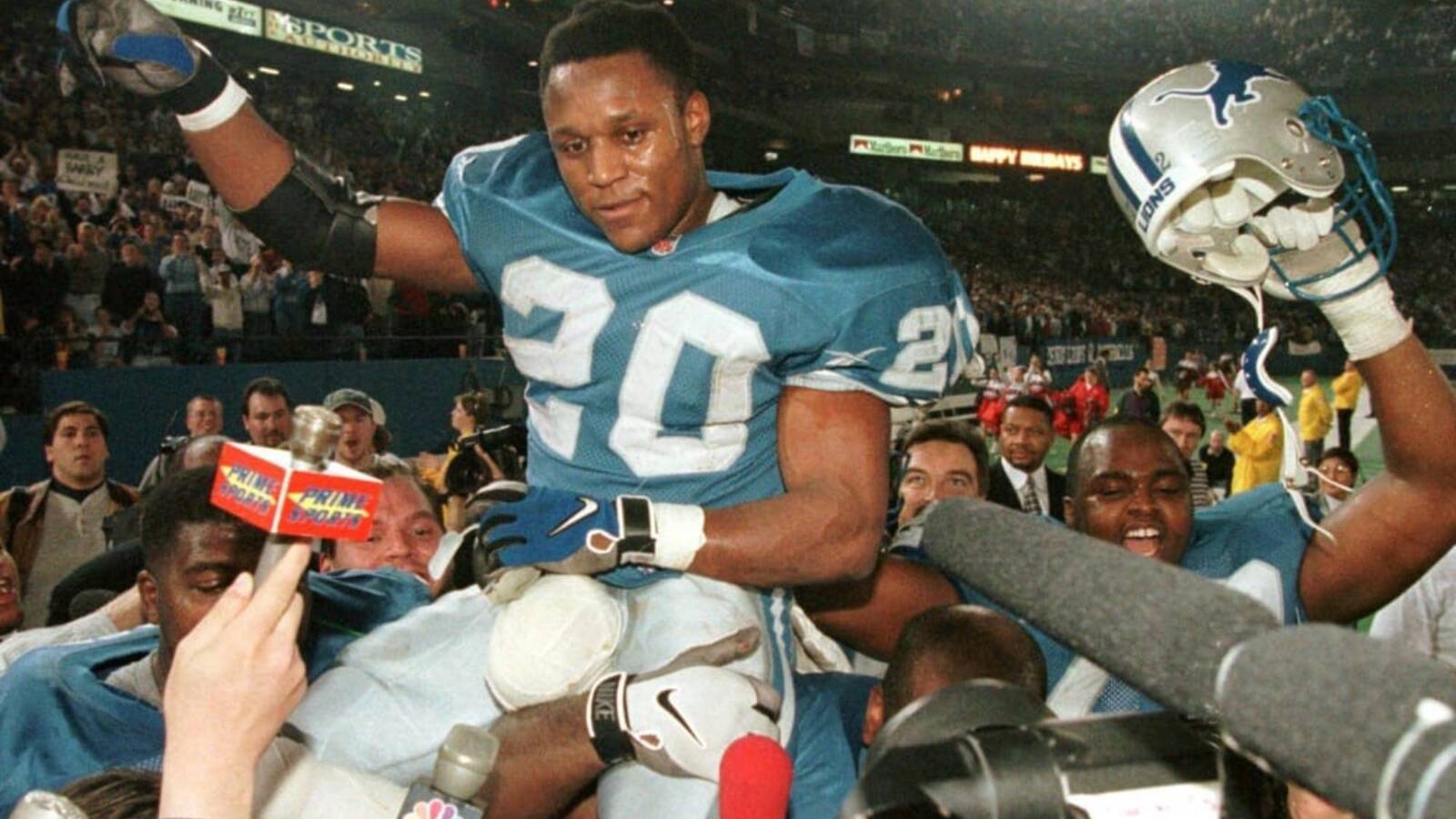
 +
+
